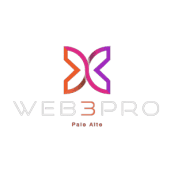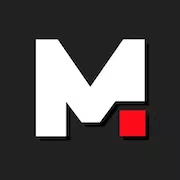What Are The Recent Trends In NFT Platform?
NFT platforms, or non-fungible token platforms, are gaining significant interest in the digital world. They let inventors and artists to tokenize their unique digital assets and resell them as one-of-a-kind digital treasures. With the recent popular acceptance of NFTs, the number of NFT platforms on the market has increased significantly.
To assist purchasers in making an informed decision, let's look at recent trends in the NFT platform sector.
1. Increased NFT Use Cases: While NFTs first became popular in the art world, they are now being researched for a variety of other applications. NFT platforms are evolving to support a broader range of digital assets, such as music, films, virtual real estate, and even tweets. The expansion of NFT use cases attracts additional consumers to the platforms, resulting in a vibrant market for digital collectibles.
2. Integration Of Blockchain Technology: Blockchain technology is the foundation of NFT platforms. It offers a secure and transparent platform for making, purchasing, and trading NFTs. Recently, there has been an increase in the creation of blockchains developed exclusively for NFTs, such as Ethereum and Flow. This integration with blockchain technology protects the legitimacy and provenance of NFTs, increasing their value for buyers.
3. Create User-Friendly Interfaces: Early NFT platforms were frequently criticised for their complex and confusing interfaces, which made it difficult for customers to explore and purchase NFTs. However, the user experience for NFT platforms has significantly improved. Many platforms now have user-friendly interfaces, allowing customers to view and acquire NFTs without prior knowledge of blockchain technology.
4. Wider Mainstream: Adoption NFTs and NFT platforms have recently received widespread attention as a result of high-profile sales and celebrity sponsorships. This greater exposure has raised awareness of NFTs and their potential as digital assets. As a result, more buyers are entering the NFT market via various channels, accelerating its expansion.
5. Improved Token Specifications: The introduction of new token standards, like as ERC-721 and ERC-1155, has further aided the expansion of NFT platforms. These standards give developers more flexibility and control over their NFTs, allowing them to create more complex and unique digital products. As a result, a broader choice of NFTs are now available on numerous platforms, providing buyers with more options.
Benefits Of Using NFT Platform
There are various advantages to using an NFT platform to purchase and sell non-fungible tokens. Non-fungible tokens (NFTs) are unique digital assets that can represent ownership of a variety of objects, including digital art, music, and collectibles. These platforms provide as a marketplace for makers and buyers to exchange these unique goods in a secure and efficient manner.
We'll look at the main benefits of adopting an NFT platform.
1. Secure And Authentic Transactions: One of the primary benefits of using an NFT platform is the ability to conduct transactions that are secure and authentic. These platforms leverage blockchain technology to ensure that each NFT is distinct and cannot be replicated or counterfeited. This offers buyers and makers trust in the legitimacy of the digital assets being traded.
2. Eliminates Middlemen: Using an NFT platform, buyers and creators can engage and deal directly, eliminating the need for intermediaries. This eliminates the need for middlemen, like as galleries or auction houses, which frequently charge exorbitant fees for their services. As a result, both buyers and sellers can save money and have greater control over the sales process.
3. Global Reach: NFT platforms have a global presence, allowing buyers and artists from all over the world to engage in the marketplace. This considerably widens sellers' potential consumer base, while buyers gain access to a broad variety of unique items from various artists and creators around the world.
4. Easy Market Access: Unlike traditional art and collectibles markets, NFT platforms are user-friendly for both buyers and creators. Creators may quickly submit their digital works, and purchasers can explore the marketplace and make purchases without regard to geography or time.
5. Ownership And Resale Rights: Using an NFT platform allows creators to fully own and control their digital products. They can also transfer resale rights, which allow them to collect a percentage of the profits each time their asset is resold, resulting in a steady revenue stream. This encourages artists to continue developing unique and valuable assets, which benefits both them and customers.
What Are The Key Features To Look For In NFT Platform?
When looking for an NFT platform, there are a few crucial elements to examine before making a decision. As the NFT industry expands and evolves, it is critical to select a platform that not only fits your current requirements but also has the flexibility to adapt to future developments.
Here are some key things to look for in an NFT platform:
1. Compatibility: Before going into the capabilities of an NFT platform, be sure it is compatible with the blockchain network you intend to utilize. NFT platforms are based on many blockchains, including Ethereum, Flow, and Polkadot. Make sure to examine the platform's compatibility and select one that fits your needs.
2. Minting And Creation Tools: The fundamental function of an NFT platform is to mint and generate non-fungible tokens. Look for a platform that provides simple tools and features for generating and managing NFTs. It should also provide customization options like metadata, royalties, and limited editions.
3. Storage And Security: Since NFTs are digital assets, it is critical to select a platform that provides secure storage alternatives. Check if the platform uses modern encryption technologies and provides secure wallets for storing NFTs. Also, seek for platforms that provide insurance or other security measures to protect your assets from any attacks.
4. Marketplace: A marketplace is where NFTs may be purchased and sold. Look for platforms with an established and active marketplace. This will not only allow your NFTs to be discovered and sold, but it will also give you with a selection of NFTs to buy and add to your collection.
5. Transaction Fees: Like other platforms, NFT platforms charge transaction fees when minting, purchasing, or selling NFTs. It is critical to investigate and evaluate the costs imposed by various platforms before selecting one that fits your budget and requirements.
6. Community And Support: Joining an NFT enthusiast community can give you with vital market insights and knowledge. Look for platforms with a vibrant and involved community where you can learn and connect with other NFT artists and collectors.
It is also critical to select a platform that provides dependable customer assistance to resolve any issues or questions you may have. Consider these critical qualities to narrow down your alternatives and select the NFT platform that best meets your needs and ambitions. Keep in mind that the NFT industry is still in its early phases, and platforms may evolve and provide new services. As a result, choosing a platform with flexibility and scalability is critical for adapting to these changes.
Which Industries Can Benefit The Most From NFT Platform?
NFT (Non-Fungible Token) platforms have received a lot of attention in recent years, thanks to the popularity of NFTs in the digital art industry. However, NFT platforms have the ability to help businesses other than art and antiques.
The following industries stand to profit the most from NFT platforms:
1. Art & Collectible: As previously stated, the art industry was one of the early and most major adopters of NFTs and NFT platforms. NFTs enable artists to produce unique digital works of art and sell them on NFT platforms, allowing creators to monetise their digital art. Furthermore, NFTs offer a more secure and transparent method of validating the authenticity and ownership of digital art objects, addressing a long-standing issue in the art industry.
2. Gaming: Another industry that stands to benefit substantially from NFT platforms is gaming. NFTs can provide in-game assets and items a distinct ownership, rarity, and real-world value. This enables gamers to genuinely own their virtual assets and exchange them on NFT platforms, so establishing a new economy inside the gaming industry. Furthermore, NFTs can be utilized to produce limited edition and exclusive in-game objects, giving gamers a sense of exclusivity and value.
3. Music: NFT platforms have the potential to transform how the music industry functions. NFTs enable musicians to create unique digital treasures such as album art, concert tickets, and behind-the-scenes footage, which may subsequently be sold on NFT platforms. This allows fans to own a portion of their favorite artist's work while also generating additional revenue for musicians. Furthermore, NFTs can be used to ensure that artists are fairly compensated for their work by allowing direct purchases to fans, which bypass established music distribution mechanisms.
4. Fashion And Luxury Goods: NFT platforms can provide much-needed openness and trust in the fashion and luxury goods industries. By minting NFTs for each premium item, firms can confirm the authenticity and ownership of their products, shielding themselves and their customers from counterfeits. NFTs can also be utilized to make limited edition and personalized luxury goods, which cater to the market's growing need for distinctive and special items.
5. Real Estate: NFT systems have the ability to transform the real estate industry by tokenizing property ownership. NFTs allow properties to be broken into smaller fractions, making it easier for investors to enter the market. This also provides for a more convenient and safe transfer of ownership, lowering the time and expenses involved with traditional property transactions. In addition, NFT platforms make it easier to manage and track property ownership and rental agreements.
Conclusion
To summarize, selecting the correct NFT platform is critical for success in the realm of digital assets. When making your decision, examine the platform's scalability, security, and user-friendliness. Consider the costs and payment alternatives available, as well as the level of support provided by the platform. It is also necessary to investigate the platform's reputation and track record in the NFT business.
With these considerations in mind, you can definitely choose the best NFT platform to fulfill your requirements and help you reach your objectives. Remember to reassess your platform choice on a frequent basis as the NFT market evolves and new platforms emerge. Staying informed and making informed judgments will allow you to prosper in the exciting world of NFTs.






















